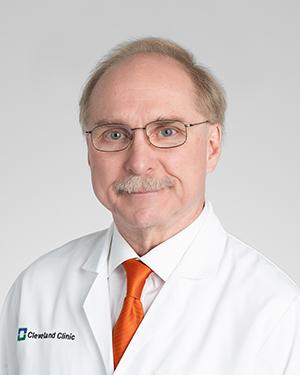Research News
11/17/2025
Cleveland Clinic researchers simulate supramolecular interactions using quantum-centric supercomputing
Cleveland Clinic and IBM created a hybrid quantum-classical computing model to simulate interactions between molecules behind protein folding, membrane assembly and cell signaling.

A team led by Cleveland Clinic’s Kenneth Merz, PhD, and IBM’s Antonio Mezzacapo, PhD, is developing quantum computing methods to simulate and study supramolecular processes that guide how entire molecules interact with each other.
In their study, published in Nature Communications Physics, researchers focused on molecules’ noncovalent interactions, especially hydrogen bonding and hydrophobic species. These interactions, which involve attraction and repulsive forces between molecules or parts of the same molecule, play an important role in protein folding, membrane assembly and cell signaling.
Why do researchers need hybrid models to simulate molecules?
Noncovalent molecular interactions involve an unknowable number of possible outcomes. Quantum computers with their immense computational power can easily complete these calculations, but conventional quantum computing methods can lack the accuracy of classical computers. To overcome these barriers, researchers are using a new computational paradigm called “quantum-centric supercomputing” that allows quantum computers to work in tandem with classical high-performance computing.
“While quantum computers lack error-correction, we need to create models that can combine the best of both computing methods,” Dr. Merz says. “The hybrid models we develop can significantly reduce the time and cost of computation, while overcoming problems that have been scientific bottlenecks.”
How did the researchers use quantum-centric supercomputing?
The researchers used quantum-centric supercomputing to simulate two supramolecular systems: water dimer (two water molecules interacting via hydrogen bonding) and methane dimer (two methane molecules interacting via hydrophobic forces).
First, the IBM Quantum System One generated samples of different possible molecular behaviors for each of the systems. The classical computer then processed these samples to output molecular energies. Using this method, the team was able to create chemically accurate simulations of both systems.
“This is the first time quantum computers have accurately simulated supramolecular interactions,” Dr. Merz says. “This opens up new possibilities to explore more complex molecular interactions, which can significantly advance our understanding of these processes and lead to the development of more effective treatments and drugs.”
Featured Experts
News Category
Related News
Research areas
Want To Support Ground-Breaking Research at Cleveland Clinic?
Discover how you can help Cleveland Clinic save lives and continue to lead the transformation of healthcare.
Give to Cleveland Clinic